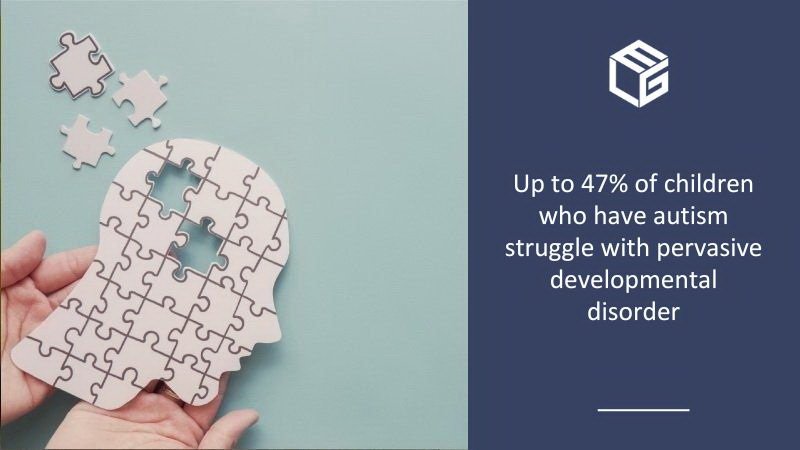The diagnosis of pervasive developmental disorder is usually given to a child when they fail to meet the criteria for Asperger's syndrome, or childhood disintegrative disorder.
Nevertheless, they experience some of the symptoms specific to disorders on the autism spectrum, poor social skills, desire to be alone, avoidance of eye contact, difficulty of telling the difference between familiar and unfamiliar people.
It is noteworthy that, in the past, specialists would use the terms "pervasive developmental disorders" and "autism spectrum disorders" interchangeably.
A study from the journal Maedica was conducted with the purpose of assessing the concentrations of 10 heavy metals in hair samples from children with autism spectrum disorders and correlating the level of these metals with the severity of the conditions (source: Maedica). The scientists included pervasive developmental disorder in their research as well, and the participants were 44 children, between 3 and 9, with autism spectrum disorders. Hair examination was performed to evaluate the long-term heavy metal exposure and the level of neurotoxins. The researchers concluded that the heavy metals mercury and lead were significantly more prevalent in the hair of children with autism spectrum disorders than in those without such conditions.
Heavy metals, making their way from the environment in baby food
Furthermore, a study from the Journal of Autism and Developmental Disorders focused on analyzing the role of heavy metals as contributors to the occurrence of neurobehavioral disorders such as autism spectrum disorders, which have become more and more prevalent in recent years. More specifically, heavy metals were recognized as neurodevelopmental toxins since they can cause neurological defects, developmental delays, learning disabilities, and behavioral abnormalities.
Contamination with heavy metals is a very alarming threat both for the environment and for humans. Since the nineteenth century, the industrial use of heavy metals increased, and, unavoidably, they were released into the environment. At the end of the last century, heavy metal emissions began decreasing in most developed countries. The emission of heavy metals in the environment occurs through a wide range of processes and pathways that severely impact the air, surface water, and soil.
Because heavy metals are now present in water and soil in concentrations that are above the normal limit, they can easily contaminate the main ingredients used in baby food, such as:
- rice cereal
- fruit juice
- puff snacks with rice
- carrots and sweet potatoes
Therefore, it should not shock us that numerous brands that manufacture baby food include heavy metals in their products, whether accidentally or neglectfully. Since the official limits and regulations on heavy metals in baby food are not very clear or strict in our country, companies often skip checking their baby food for high levels of heavy metals. This is how these neurotoxins make their way into the food parents feed their children and subsequently lead to the occurrence of autism spectrum disorders.

